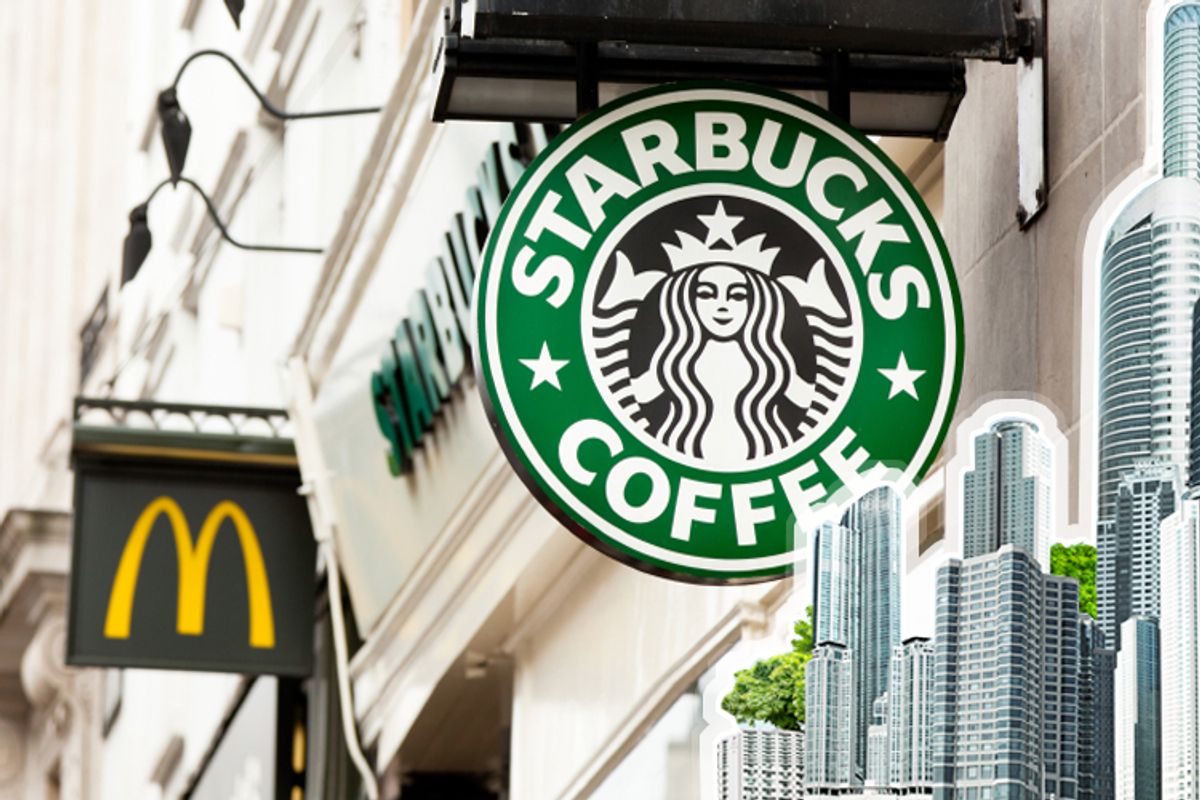Employees and activists are targeting Starbucks and McDonald's with 20 protests this week, coordinating across borders and supply chains in an effort to squeeze corporate giants. Rallies or leafleting actions are planned or took place in cities including Seoul, Paris, Auckland, New Zealand, and Seattle, where activists targeted both Starbucks corporate headquarters and CEO Howard Schultz’s home.
Starbucks and McDonald's are tied together by the food packaging company Pactiv, which was purchased by a New Zealand company in 2010 and produces cups for both the coffee and fast food corporations. Members of the Association of Western Pulp and Paper Workers allege that Pactiv is demanding needless wage and benefit cuts from workers who fashion Starbucks cups in Stockton, Calif. The AWPPW is pushing protests this week along with labor groups including the Industrial Workers of the World’s Starbucks Workers Union and the Sindicato de Starbucks Chile, whose members recently went on strike over alleged union-busting.
In an emailed statement, Starbucks employee and IWW activist Samantha Cole said Starbucks CEO Howard Schultz “gobbled up $28.9 million in pay last year alone while we baristas made less than $9 an hour on average, even though we produced over $1.4 billion in profit for the company.” Referencing Starbucks’ fiscal cliff stunt of instructing D.C.-area employees to write “Come Together” on coffee cups as a message to Congress, Cole said, “we’re ‘coming together’ on our own to ask him to spread the wealth – create good jobs at Starbucks and insist on fairness at its suppliers.” Starbucks, McDonald's and Pactiv did not respond to requests for comment.
This week’s actions are the latest by members of the IWW’s Starbucks Workers Union, a decade-old effort active in a handful of U.S. cities. Daniel Gross, a founding member who was among the IWW activists fired by Starbucks, this month told Salon that the group's past efforts proved “We could attract our co-workers to a non-traditional model” of pushing for changes without seeking collective bargaining, and “we could inspire our co-workers to action. And believe it or not, we even won stuff: we got holiday pay on Dr. King’s day, you know. We fired basically a boatload of abusive managers by challenging them directly.” However, he said, “what we didn’t achieve was retention. We weren’t able to achieve an enduring membership program.”
Gross, who now leads the IWW-allied labor group Brandworkers, told Salon “the scale that we had hoped for, hadn’t been achieved” at Starbucks, but the campaign “still exists. It’s growing slowly, it’s much more quiet now, because, to use the term of the moment, we’re pivoting.”



Shares